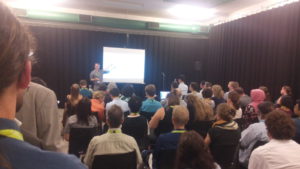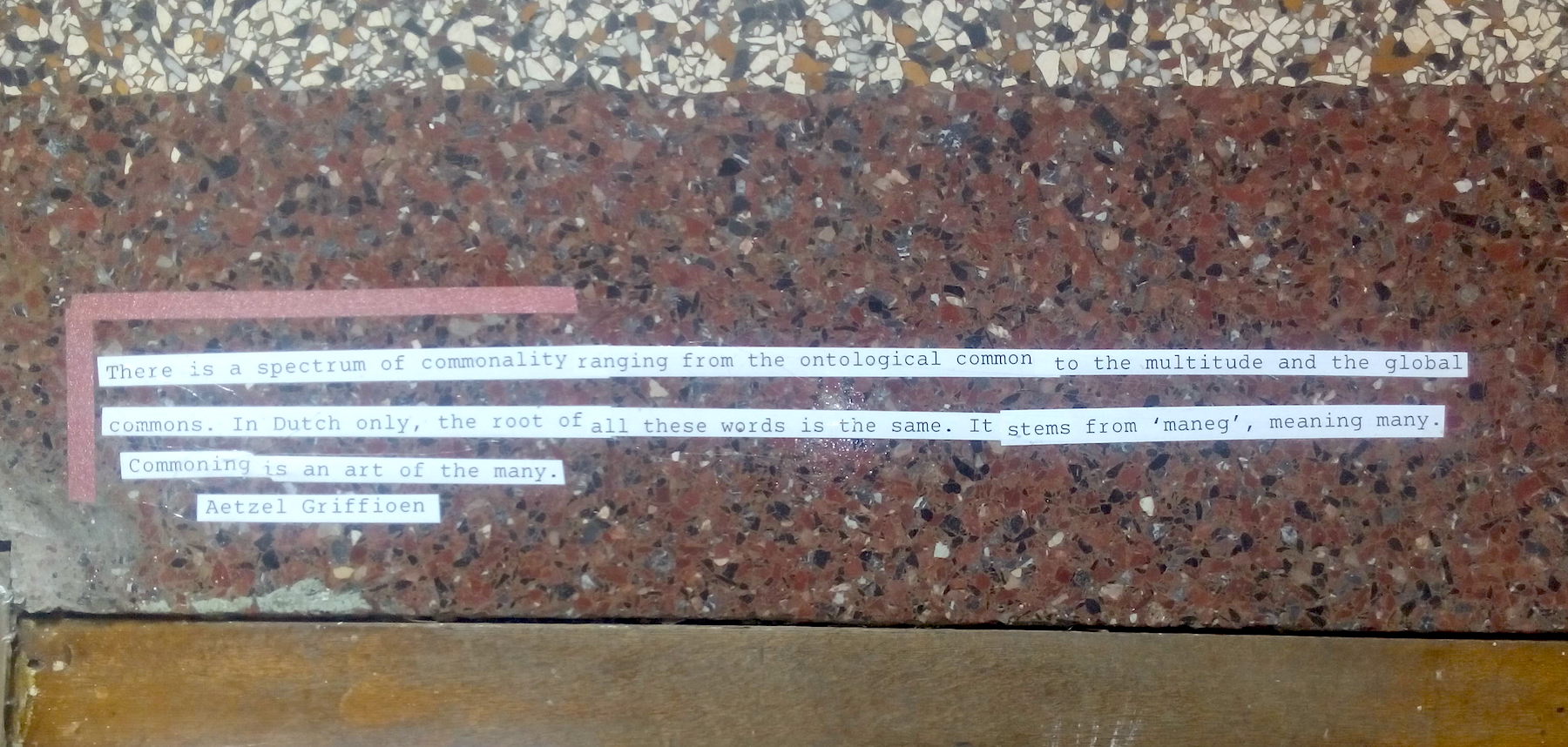
My second blog in the series covers both day 2 and day 3 of the 16th IASC conference, because yesterday I could not find the time. The general theme I derive from the two days is: what can we use the ‘commons’ lens for? This is a major and indefinite topic of which I can merely scratch the surface today.
Monday I wrote about what is perhaps the constitutive terrain of ‘the commons’: (agricultural) land use and forestry. Constitutive, because pastures and forests were the first resources which came into ‘commons-style’ collective management and remain the primary source of commons scholarship (and practice). But today’s debate shifts quickly. Quote the introduction to today’s plenary policy debate ‘Framing the commons’:
“The commons are back on the agenda again, of activists, politicians, policy makers who see them as an alternative governance regime for the management and use of resources, where ever the market fails or the state retreats. This positive approach is also receiving a lot of attention due to the rise of citizen’s collectivities; in particular across Europe, citizens are actively working together – e.g. in cooperatives – to produce and provide in energy, care, infrastructure etc. and choose not to engage with regular market parties.”
The text proceeds to aks the question, Are citizens right to be so optimistic about the commons as an alternative governance model? This is a right thing to ask, but it’s a bullet I choose to dodge at this moment. I prefer to use ‘the commons’ as a vein of thinking with which we can interrogate current (policy, legal and cultural) practice and discover possible futures. That means I agree with Saskia Sassen, yesterday (Tuesday)’s keynote speaker to the conference. For Sassen, concepts like the commons are fit to challenge a prevailing paradigm and its adverse outcomes. Now paradigms are not really a blog subject, so I’m cutting this short. Sassen says that looking into the commons entails a ‘discovery’, a finding of something we hold dear but yet is quite fuzzy. For Sassen, working with fuzzy concepts helps seeing things that you miss out on when you’re in the heart of a paradigm. Though lamented by the more orthodox commons scholars, the present-day ‘fuzzy’ application of ‘the commons’ suits to “actively destabilize meanings”. What Sassen then seeks to destabilize is today’s “extractive logic”, i.e. the way in which the centres of (financial) power succeed in siphoning off value from society while maintaining some sort of cognitive legitimacy (read: political support) within that society. Saskia Sassen has in her ‘destabilizing’ work scarcely referred to the commons, but she has definitively been key in carving out the extractive-vs.-generative idiom prevalent in commons scholarship.
Fuzziness, though, comes at a toll. This could be observed among multiple panel sessions in the past two conference days. The main problem cropping up is that the use of ‘commons spectacles’ when looking at situations is often evidence of wanting to see commons in the situations. And not just ‘clinical’ commons, but wholesome commons. That means that the commons are no longer an analytical tool but a normative and even theological question. I have to admit that I join these ranks, but in academia, it’s a problem. Motivation why ‘the commons’ is a useful lens in those cases was often lacking or unsatisfactory, and that’s a pity, because I think that in the end most of the cases can be seen in the light of the commons, but with more precision, comprehension, and recognition of pitfalls and dilemmas.
To be continued.
(Navigate to earlier/later posts using the arrow links, underneath the ‘Posted in…’ line below.)
